
Registration is open for the 2024 Coresta Congress in Edinburgh, Scotland, Oct. 13–17.
The theme for the congress is Advancing Tobacco Harm Reduction Through Scientific Collaboration.


Registration is open for the 2024 Coresta Congress in Edinburgh, Scotland, Oct. 13–17.
The theme for the congress is Advancing Tobacco Harm Reduction Through Scientific Collaboration.
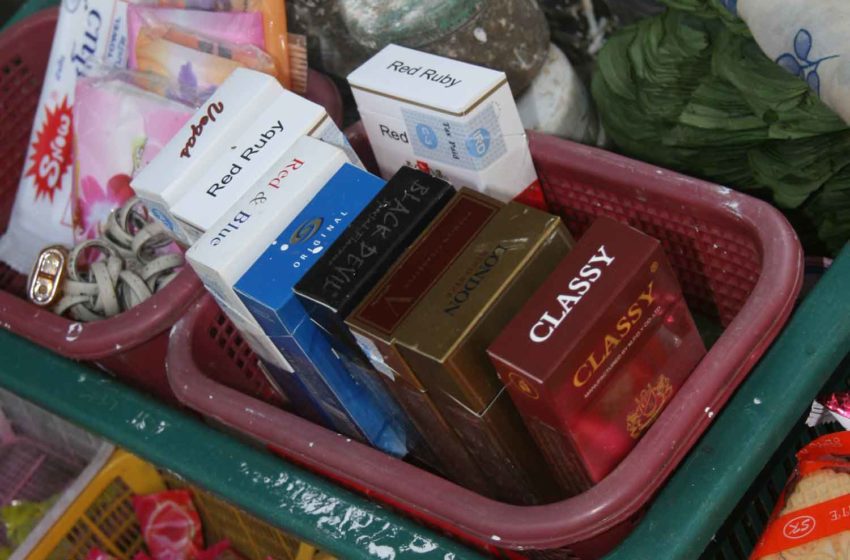
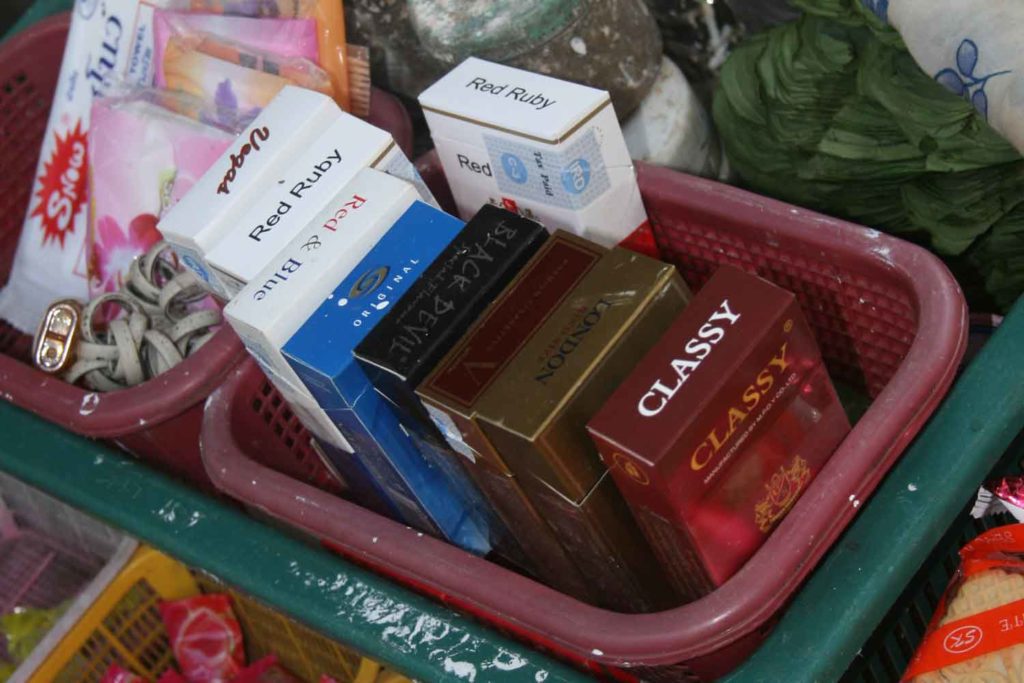
Myanmar’s military-owned Myanma Economic Holdings (MEH) has massively increased production of its Red & Blue cigarette brand since 2022, reports Myanmar Now.
Following the 2021 military coup, many consumers and activists opposed to the coup boycotted the two better known military-owned cigarette brands.
Few boycott the Red & Blue brand because it is not widely known that MEH has a role in producing it.
Since 2022, the quantity of Red & Blue cigarettes produced has increased fifteenfold.


The tobacco tax proposed in Bangladesh’s 2024–2025 budget will make tobacco products cheaper and more affordable, according to critics.
According to the Daily Sun, health groups believe the proposal will encourage youth to use tobacco products, leading to an increase in tobacco-related deaths and illnesses. “Consequently, government expenditure on public health will rise,” the PROGGA and ATMA health groups wrote in a statement. “The proposed budget will also result in the government losing the opportunity to earn an additional BDT10,000 crore [850.44 million] in revenues.”
The statement notes that the retail price increase is minimal. “This means the hike per stick is only BDT0.50 (11.11 percent). The supplementary duty has been raised by 2 percent from the existing 58 percent to 60 percent.”
“It should be noted that, very recently, the third report of Tobacconomics Cigarette Tax Scorecard has revealed a grim picture of the affordability of cigarettes in Bangladesh. Bangladesh scored 1.13 out of 5. The country’s score in the previous report was 2.38,” the statement said.
“The retail price as well as the [supplementary duty] imposed on the low-tier cigarettes, which holds 75 percent of cigarette market share, has seen a very negligible change. We demand that the government set the retail price at least BDT60 and [supplementary duty] 63 percent so that it reduces the affordability of cigarettes, safeguards the youth and increases the revenue of the government manifold,” said PROGGA Executive Director ABM Zubair.


Tobacco farmers in Zimbabwe have called on the government to improve local funding of the country’s leaf production to ensure that farmers are receiving maximum benefits from their crops, reports The Herald.
Tobacco farming is financed mainly through offshore funding; 95 percent of farmers work under contract, and 5 percent are self-financed.
Zimbabwe only retains about 12.5 percent of its tobacco value as the remainder goes toward paying back loans and interest from offshore financiers.
According to George Seremwe, chairman of the Zimbabwe Tobacco Growers Association, production costs have increased, and local banks cannot finance farmers.
“We are not happy with the current model of contract farming because these merchants are not for the benefit of most of us, so we would like to change that. We are not happy with the current contract system because we are not getting any benefit from anything as farmers. Actually, we are getting poorer.
“We have to raise local funding. As farmers, we are going to look at ways of how we are going to raise capital. We can raise funding to be able to support ourselves. Foreign funding is costly, and it has restrictions on it, and it is not benefiting us at all. Let us rectify this because our government is the one which controls the financial institutions.”
“We have over 30 percent of farmers who are doing side marketing because these offshore beneficiaries entice them,” said Edward Dune, vice president of the Tobacco Farmers Union Trust. “We are very aware of these surrogate players in the industry, but as farmers, we are very much in support of local funding. As farmers, we need good agronomic practices to put in place so that we get maximum benefits out of it.”


Pakistan Tobacco Co. (PTC), a BAT subsidiary, is lobbying the Pakistan government to allow export of 10-piece cigarettes packs to Sudan, reports The Guardian. Pakistan is one of more than 80 countries that prohibits the sale or manufacture of 10-piece cigarette packs. Sudan, by contrast, permits such packs.
In a letter to the government, PTC said it “received a new export order to manufacture for Sudan, which includes packs of 10 cigarettes.”
PTC told the government that exempting export orders from the 10-cigaratte pack ban would benefit Pakistan as the order is worth $20.5 million and could be repeated.
Health activists urged the government to deny the request. “It is beyond shameful that British American Tobacco is seeking to alter the law in Pakistan so that it can flood an African country in crisis with cheap cigarettes,” said Mark Hurley, vice president of the Campaign for Tobacco-Free Kids. Sudan is currently in the midst of a civil war.
According to Hurley, over 80 countries have banned sales of small packs, requiring at least 20 cigarettes per pack, “because evidence shows these cheap packs are used to target kids and vulnerable populations.”
“Exploiting not only this knowledge but a country facing a humanitarian crisis is the behavior of a company that will truly stop at nothing to sell and addict more people to cigarettes,” he said.
BAT countered that the export order was intended to replace domestic manufacturing by its Sudanese subsidiary Blue Nile Cigarette Co. (BNCC), which is based in Madani, where there has been heavy fighting in the civil war.
“To ensure the continuity of products to meet consumer demands in Sudan, which predominantly operates in cigarette packs of 10, Pakistan was given the export order to supply to BNCC,” said a BAT spokesperson. “The clearance for the export order of cigarette packs of 10 from Pakistan to Sudan is pending regulatory approval by the government of Pakistan. The clearance complies with all local laws and regulations in Sudan.
“For any products manufactured by BAT, we abide by strict marketing principles to prevent marketing and sales to underage [consumers]. These measures include prominent 18-plus age warnings on packaging as well as our communications.”


The potential return of Juul to U.S. store shelves would represent a win for consumers and tobacco harm reduction, according to the Consumer Choice Center (CCC).
On June 6, the U.S. Food and Drug Administration rescinded its 2022 marketing denial order. While the move is neither an authorization nor a denial, it places the company’s premarket tobacco product application back into scientific review, meaning it could potentially be authorized at some point.
“This is a step in the right direction for consumers who want more nicotine alternatives to combustible tobacco,” said CCC U.S. Policy Analyst Elizabeth Hicks.
The FDA said in its June 6 statement that it had “conducted additional substantive review of the applications in a number of disciplines, including toxicology, engineering, social science and clinical pharmacology” and that their change of course is based on a “review of information provided by the applicant” plus new case law based on court decisions involving MDOs for e-cigarette products.
“With over 26 million applications submitted to the FDA, less than 10 e-cigarette devices have been approved by the agency. Vaping is 95 percent less harmful than smoking combustible tobacco, and the FDA has an opportunity to help drastically improve public health by allowing consumers a choice when it comes to alternatives to combustible cigarettes,” said Hicks.
The FDA decision opens the door for Juul to return to the market in the future and allow U.S. consumers the same choice as those in the U.K. and Canada.
“We hope the FDA provides a clear and transparent pathway for Juul Labs and the thousands of other companies who submitted product applications to finally gain authorization to offer their products to consumers in a regulated market,” concluded Hicks.

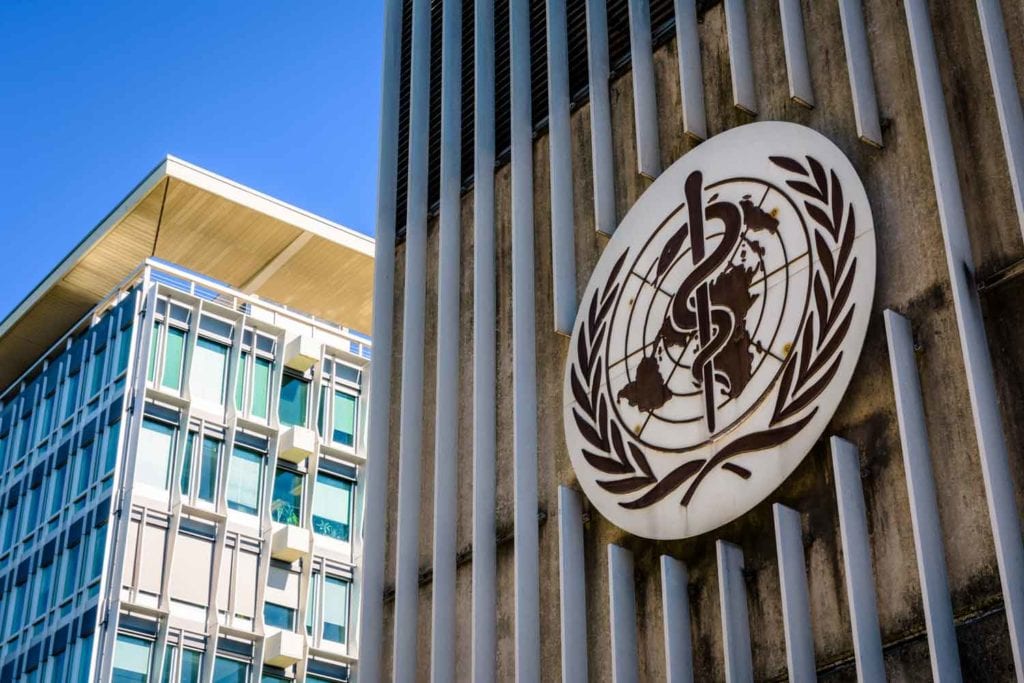
The World Health Organization has announced the approximate dates of the 11th session of the conference of the parties to the Framework Convention on Tobacco Control (COP11) and the fourth session of the meeting of the parties to the Protocol to Eliminate Illicit Trade in Tobacco Products (MOP4).
COP11 will take place in the week of Nov. 17, 2025, at the Geneva International Conference Centre.
MOP4 will take place in the week of Nov. 24, 2025, at the WHO headquarters.
The specific dates will be communicated later.
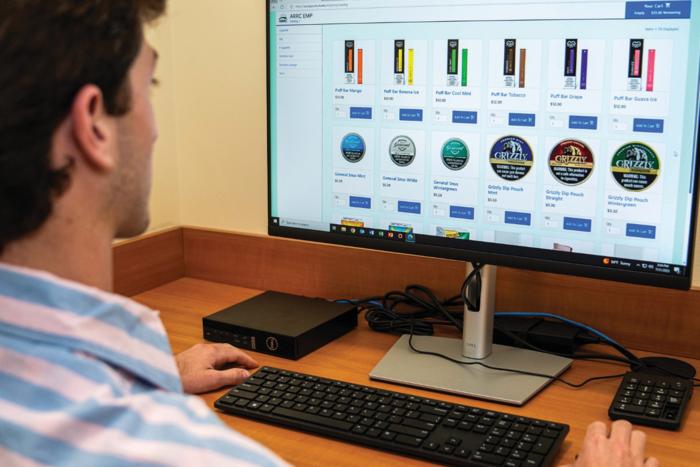

Restricting menthol flavor in cigarettes while making nicotine replacement therapy more available and affordable has the potential to reduce socioeconomic disparities in tobacco use.
That was one of the findings in a study published in May in Nicotine and Tobacco Research that marks a new use of existing data from the Fralin Biomedical Research Institute at VTC’s Addiction Recovery Research Center. Researchers analyzed data from their Experimental Tobacco Marketplace to look beyond broad effects of tax and regulatory policies for the journal’s special issue on the health equity effects of restricting flavored nicotine.
Smoking also accounts for more than 30 percent of the difference in life expectancy among socioeconomic groups, according to the study’s lead author, Assistant Professor Roberta Freitas-Lemos.
Freitas-Lemos said the team saw an opportunity to use the marketplace to extend the Fralin Biomedical Research Institute’s work in addressing equity and inclusion in health research.
“We realized we could use an existing data set, split the sample in two based on socioeconomic status, and compare how policies implemented affected purchase behaviors of different groups,” she said in a statement. “The study has shown us that flavor restrictions may decrease tobacco-related disease and death rates.”
According to the researchers, it also points to the need to evaluate tobacco restrictions in a broader context, as cigarette substitution is highly dependent on what other products are available.
In the Experimental Tobacco Marketplace, study participants use an online account to purchase tobacco and nicotine products based on their reported use. Researchers adjust the product mix and pricing to predict their effects on purchase behavior. The marketplace applies the economic concept of substitution effect, in which decreased sales of a product can be attributed to purchasers switching to alternatives as prices rise.
“We came up with a methodology, endowed it with an Amazon-like interface, and we give study participants an amount to spend based on their reported use,” said Warren Bickel, professor with the Fralin Biomedical Research Institute and director of the Addiction Recovery Research Center. “In the process, we’re understanding how new policies may change consumers’ behavior.”
What’s critical, he said, is understanding the interplay of policies. “We’ve shown there’s a policy that ameliorates disparity, but if you implement a second, different policy simultaneously, it destroys that effect,” Bickel said. “We think this is an exciting outcome. If we can actually start addressing and forecasting the impact of policy on health disparity, that’s a game-changer.”
Bickel also is director of the institute’s Center for Health Behaviors Research and a psychology professor with Virginia Tech’s College of Science. Freitas-Lemos also is assistant professor in the College of Science and is part of the Fralin Biomedical Research Institute’s Center for Health Behaviors Research and Cancer Research Center.
In addition to Freitas-Lemos and Bickel, Fralin Biomedical Research Institute authors on the study include Research Assistant Professor Allison Tegge and Assistant Professor Jeffrey Stein.
The research is supported by the National Cancer Institute of the National Institutes of Health. “This elegant work by Dr. Freitas-Lemos, Dr. Bickel, and their colleagues spans behavioral neuroscience and tax policy. It represents an emerging area of importance in cancer research that is becoming a major area of emphasis at the National Cancer Institute,” said Michael Friedlander, Virginia Tech’s vice president for health sciences and technology and executive director of the Fralin Biomedical Research Institute. “We are very fortunate to have such an array of talent among our research community that is poised to move the needle in this important new focus for both initial cancer prevention and relapse.”
The team focused on data that simulated the effects of a menthol cigarette ban and a flavored electronic cigarette ban on study subjects based on education and income levels. The analysis examined four conditions: one that mirrored the current market environment, one that imposed only menthol cigarette ban, one that imposed only e-cigarette flavor restrictions, and one that restricted both menthol cigarettes and flavored e-cigarettes.
Researchers saw significant differences under the one that mirrored the current market: Participants in the high socioeconomic status group purchased fewer cigarettes, more e-cigarettes, and more nicotine replacement therapy. The lower-status group purchased more cigarettes, fewer e-cigarettes, and fewer replacement-therapy products. Researchers speculate that menthol allows users to inhale more deeply, potentially allowing smokers with restricted resources to optimize their nicotine intake.
The main finding was that a menthol cigarette flavor ban only significantly decreased disparities with the group with lower socioeconomic status purchasing fewer cigarettes and more nicotine replacement therapy than the group with higher socioeconomic status.
They also found that flavor restrictions lessened differences between the groups’ purchases of nicotine replacement therapy.
The journal’s special issue inspired the current research, but the team has been looking for opportunities to extend a health equity lens to the experimental marketplace.
“We see the prevalence of cigarette use decreasing in the United States, but the disparities are increasing,” Lemos said. “Having an experimental model that can investigate that is important to the field of tobacco research.”
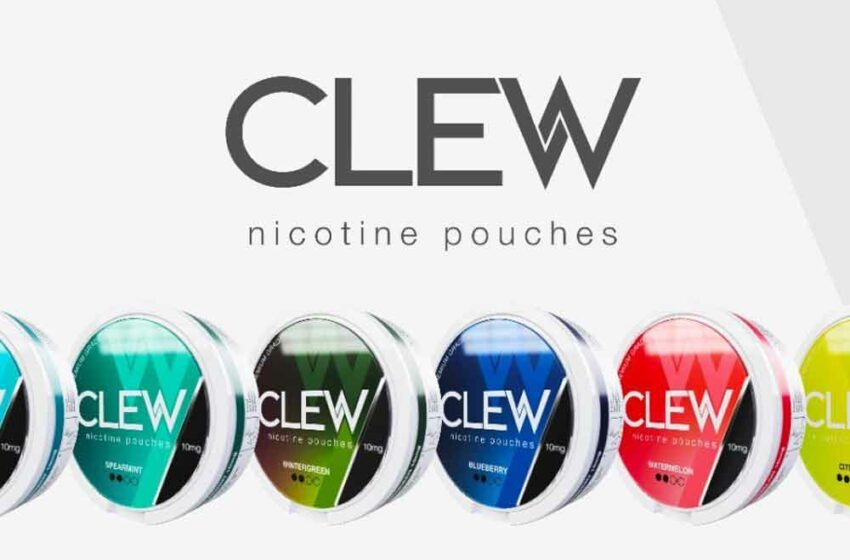
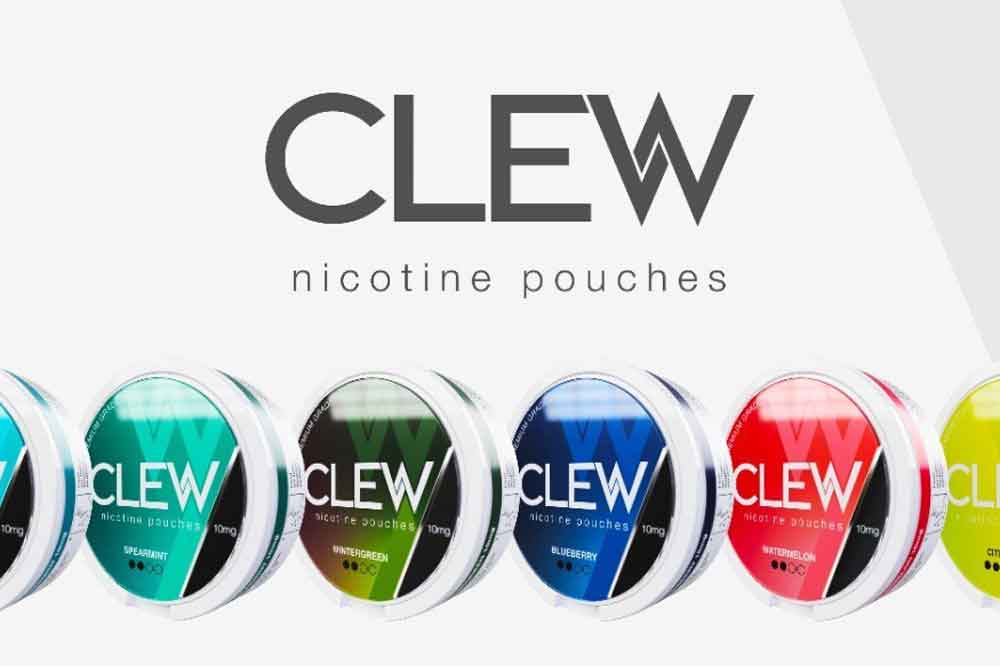
The U.S. Food and Drug Administration has accepted a premarket tobacco product application for Nevcore Innovations’ CLEW modern oral nicotine pouches.
According to the manufacturer, CLEW pouches are manufactured in state-of-the-art cGMP- and HAACP-certified facilities that comply with strict quality protocols and ensure products meet the highest safety standards.
“At the core of CLEW lies our unwavering commitment to delivering an unparalleled experience, by blending cutting-edge technology with the finest ingredients,” said Nevcore Innovations’ founder and chairman, Nutesh Singla, in a statement.
“Crafted with precision and passion, CLEW nicotine pouches are formulated at the top laboratories in the USA and contain pharmaceutical-grade nicotine and carefully selected flavorings, ensuring a gratifying sensation with every use.”
“CLEW nicotine pouches herald a new era in nicotine indulgence, and we are confident they will set the new global benchmark for white nicotine pouches the world over,” said Nevcore Innovations’ global CEO, Waqas Khan.
“We have listened to the needs and desires of consumers and have developed a product that not only meets but exceeds their expectations and are confident that they will play a significant role in global harm reduction efforts. With CLEW, we are reimagining what it means to enjoy nicotine, providing a solution that is both convenient and satisfying.”
CLEW nicotine pouches will be available in flavors such as mint, fruit and tobacco, and in strengths of 3 mg, 5 mg, 6 mg, 9 mg, 10 mg, 12 mg, 15 mg and 20 mg.
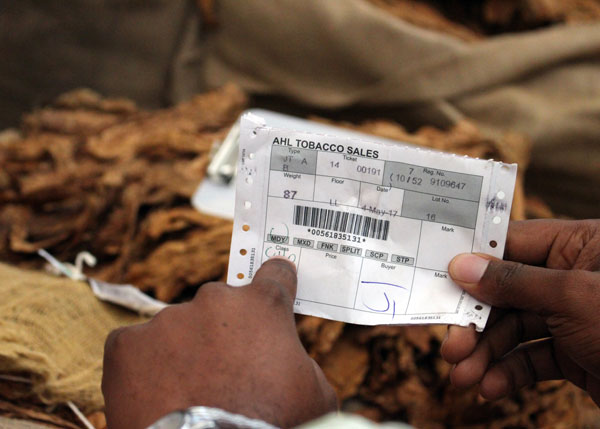
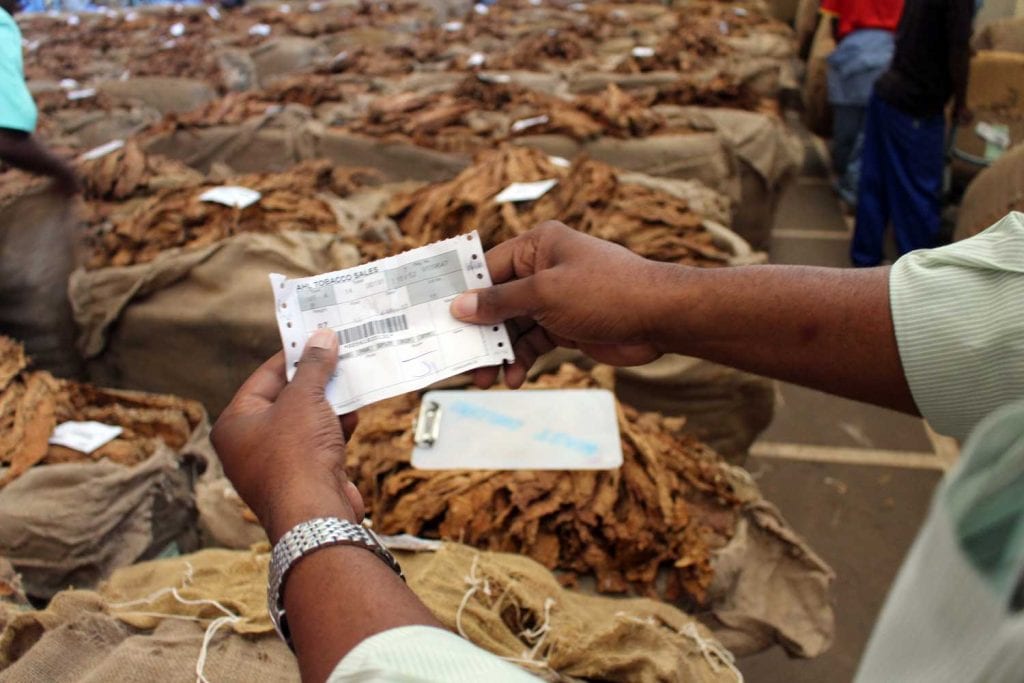
Malawi tobacco growers have sold 64.7 million kg of tobacco for $182 million in the seven weeks since the marketing season opened, reports The Nyasa Times.
Tobacco Commission spokesperson Telephorus Chingwenembe said the average price, at $2.81 per kg, was 26 percent above that fetched during the same period during last year’s selling season.
“We are happy to note that the progress of the selling season underway has triggered people’s interest to grow the crop,” he was quoted as saying. “This aligns very well with our goal to increase our annual production to 200 million kg by 2028 because in the recent years, we have been failing to meet the trade demand. The demand is higher than what we are currently producing.”
Chingwenembe also praised the high quality of leaf being brought to the sales floors.
